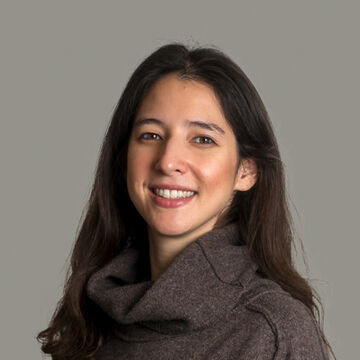

Sarah Zhou Rosengard
Assistant Professor
Contact
Bio
Education: PhD (2017), Chemical Oceanography, MIT-Woods Hole Oceanographic Institution, Woods Hole, MA; BSc (2011), Environmental Science, Brown University, Providence, RI. Publications: Biogeosciences, Limnology and Oceanography Methods, Limnology and Oceanography Bulletin, Group on Earth Observations blog, Oceanus Magazine, EOS, Geochemistry, Geophysics, Geosystems, Fisheries Oceanography. Exhibitions: Science World in Vancouver, BC. Awards: The NSF Graduate Research Fellowship; ASLO Global Outreach Initiative Award; UBC Ocean Leaders Postdoctoral Fellowship; MEOPAR Postdoctoral Fellowship; Mitacs Postdoctoral Elevate Award.
I am an ocean scientist and assistant professor of environmental chemistry at the SAIC department of Liberal Arts. My coursework explores human impacts on the environment, the powerful tools that chemistry provides in detecting human impact, the inequities of human-driven environmental change, and the complex role of scientists as advocates for sustainability.
Originally from Queens NY, I have had the privilege to learn and grow from researchers and community leaders spanning New England to Vancouver, and the Amazon River Basin to the Canadian Arctic. After completing my PhD at MIT-Woods Hole Oceanographic Institution, where I studied the carbon cycle in the Southern Ocean and the Amazon River Basin, I accepted a postdoctoral position at the University of British Columbia to pursue deeper interests in community engagement through research. While exploring the links between satellite imagery and Pacific salmon productivity, I connected with the Arctic Eider Society, an Inuit charity, on the Indigenous knowledge social network SIKU (pronounced “see-koo”) to support ways for northern communities to access data sets like satellite-derived ocean color.
Here in Chicago, I research the local geochemistry of the Chicago River, and collaborate with a variety of organizations like Friends of the Chicago River, Urban Rivers and Teens Take on Climate to support citizen science around our urbanized waterways. My coursework and collaborations often explore avenues for the arts to expand the scope of citizen science as a means for opening science to the broader community.